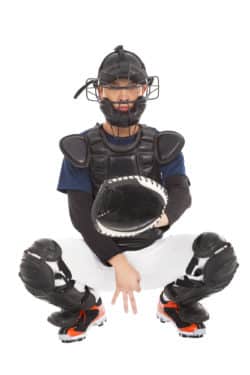
According to the two teams and Major League Baseball, the fans do not have the right to sue over violations of MLB rules.
Additionally, MLB and the teams argue that they were under no contractual obligation to ensure that fantasy games played by fans were fair, as the fans had argued.
The baseball industry members call the arguments made by fantasy baseball fans “fatally flawed.”
The fantasy baseball fans had argued that the Boston Red Sox and the Houston Astros engaged in illegal sign stealing, a practice designed to gain insight into what strategies the opposing team is going to use. According to fans, the type of sign stealing used by the two teams violated MLB rules.
The fans claimed that the industry members violated a duty to record performances accurately and ensure that the metrics that go into the performance are achieved through what the customers determine to be fair and legitimate means.
The plaintiffs claim that the sign-stealing financially injured them because had they known that the games were played using sign stealing, they would not have played the fantasy game or would not have made the choices they did.
However, MLB, the Red Sox, and the Astros argue that the fans did know that sign-stealing was taking place and chose to play fantasy baseball nonetheless. The industry members note that the sign-stealing controversy was well-publicized at least three times during the Class period from 2017 to 2019.
According to the Red Sox, the Astros, and MLB, the fact that customers chose to participate in fantasy baseball with the knowledge that sign-stealing was being used “flatly refutes any assertion” that their participation in fantasy baseball was based on an assumption that player performance was not affected by MLB rule violations.
The industry members claim that this knowledge negates the MLB sign-stealing class action lawsuit’s fraud claim and claims made under various state laws.
Further stressing their argument that the fantasy baseball sign-stealing class action lawsuit should be thrown out, the industry members argue that issues of league rule violations are “best resolved on the field and not in the courtroom.”
Do you play fantasy baseball? Do you play based on the assumption that the games are played fairly? Tell us about your opinion in the comments below.
The fantasy league baseball fans are represented by David S. Golub, Steven L. Bloch and Ian W. Sloss of Silver Golub & Teitell LLP.
The MLB Fantasy Sports Class Action Lawsuit is Olson v. Major League Baseball, et al., Case No. 1:20-cv-00632, in the U.S. District Court for the Southern District of New York.
Read About More Class Action Lawsuits & Settlements:
GM Class Action Alleges Engine Oil Guzzling Defect
ATTORNEY ADVERTISING
Top Class Actions is a Proud Member of the American Bar Association
LEGAL INFORMATION IS NOT LEGAL ADVICE
Top Class Actions Legal Statement
©2008 – 2026 Top Class Actions® LLC
Various Trademarks held by their respective owners
This website is not intended for viewing or usage by European Union citizens.














